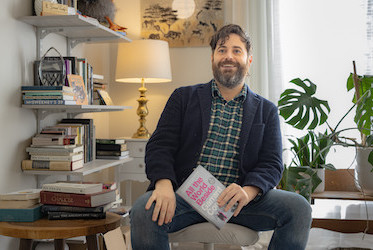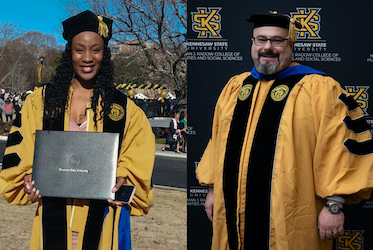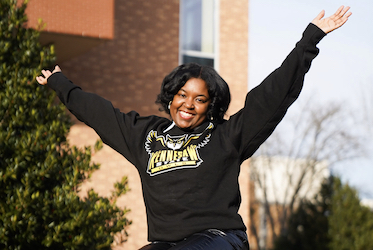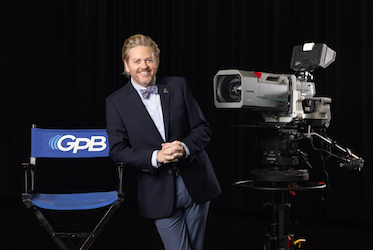
KSU professor captures snapshot of paparazzi life
KENNESAW, Ga. | Mar 19, 2021
Kennesaw State University journalism professor Josh Azriel is an ardent supporter of freedom of the press rights for members of the mass media – even more so after having been in the trenches with a group that some people might deem less worthy of freedom to do their job: the paparazzi.
Azriel spent a week with celebrity photographers in Los Angeles in 2019, gaining insight that he compiled into his book “Restricting Los Angeles Paparazzi: California’s Legal Efforts Impacting Free Press Rights.” His primary takeaway that he shares with his students in KSU’s School of Communication and Media, especially those in the media law and ethics class, is that a free press includes all press – even those whose livelihood is to snap and sell photos of high-profile people.

“In my opinion, paparazzi are members of the press; if they’re protected by law, all the other mainstream press are,” Azriel said. “Love or hate the paparazzi, they fill the public’s demand for celebrity photos. Within that demand, those who work as paparazzi are entitled to the press freedoms in the United States.”
During his week as a paparazzo, Azriel took photographs at the world premiere of the movie “Fast and Furious Presents: Hobbs and Shaw,” starring Dwayne Johnson, Jason Statham and Idris Elba. He also hit the pavement in search of photo-ops, including walking through the Studio City Farmers Market that celebrities are known to frequent and waiting outside the popular restaurant Craig’s on a night that Kim Kardashian and Kanye West chose to dine there and were surrounded by paparazzi upon their arrival.
More than any celebrity sighting, though, Azriel was struck by his interactions with the photographers who make their living in the highly competitive, much maligned world of the paparazzi. For example, he met Giles Harrison, who claimed that he spends $200 per week on gas and drives about 2,000 miles per month on the streets of L.A. in his quest to capture photos of famous people.
“You may not respect what celebrity photographers do for a living, but you have to respect their work ethic,” Azriel said. “They work 12- to 15-hour days, never knowing day-to-day how much money they’re going to make. Their job is all about getting paid a lot of money for that one photo.”
A
While those specific laws apply only in California, Azriel views them in terms of their broader implications for anyone in the mass media. He contends that the state’s legislators easily could, and should, amend the laws.
“Providing more protection for the legitimate functions of the media, including paparazzi, would put the focus of the law where it should be – on those criminals who genuinely stalk and harass victims with potential physical harm,” Azriel states in his book. “The press cannot be directly or indirectly censored or otherwise penalized without showing a direct harm to society. The penalties within the law amount to an informal form of prior restraint and censorship, and in this circumstance, it is unconstitutional.”
In class discussions with his KSU students about free press rights, Azriel often brings up real-life cases, such as Prince Harry and Meghan Markle’s settlement last year with a news agency that flew drones over their private property to take photos of their young son playing in the backyard. Azriel’s week embedded with L.A. paparazzi gave him firsthand perspectives to share with his students.
“It applies to them because the book has an ethics component and a law component,” Azriel said. “I tell my students that they are guaranteed to encounter something in their professional career that they will be able to look back on this media law class and realize, ‘A-ha! I remember that we learned about this.’”
– Paul Floeckher
Photos by David Caselli and Jason Getz
Related Stories
A leader in innovative teaching and learning, Kennesaw State University offers undergraduate, graduate and doctoral degrees to its more than 45,000 students. Kennesaw State is a member of the University System of Georgia with 11 academic colleges. The university’s vibrant campus culture, diverse population, strong global ties and entrepreneurial spirit draw students from throughout the country and the world. Kennesaw State is a Carnegie-designated doctoral research institution (R2), placing it among an elite group of only 7 percent of U.S. colleges and universities with an R1 or R2 status. For more information, visit kennesaw.edu.




















